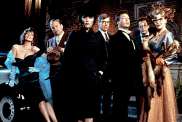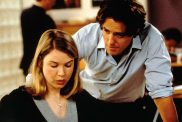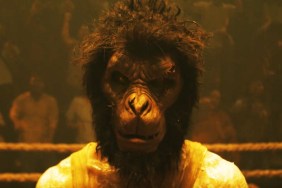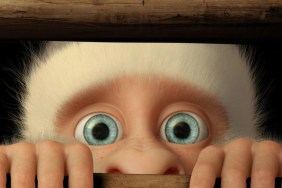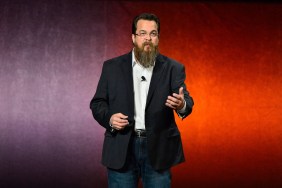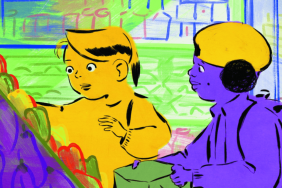It’s been less than two years since Alexander Payne scored his second Academy Award for The Descendants, but he’s already circling for another round of awards buzz with his latest feature Nebraska.
Bruce Dern leads as Woody Grant, an elderly man determined to make it to Lincoln, Nebraska so he can pick up the million-dollar prize he thinks he won in a marketing campaign. His son David (Will Forte) tries to convince him the letter is just a scam, but Woody is relentless. Even though his mother (June Squibb) and brother (Bob Odenkirk) protest, David decides to ride the scenario out for the sake of Woody’s mental and emotional stability, and drives him from Montana to Nebraska.
Even though Payne hits it big yet again by achieving notably natural performances and a combination of comedy and drama that produces beautifully bittersweet results, he also treads into unfamiliar territory because Nebraska is shot entirely in black and white.
A day after the film’s screening at the New York Film Festival, ComingSoon.net got the chance to talk to Payne about tapping into familiar techniques, embracing new challenges, and more. Catch what Payne had to say about working with non-actors, choosing colors that best suit the black and white format, the woes of Internet-based rumors and more in the interview below.
ComingSoon.net: Can you tell me about balancing the comedy and the drama here? There are so many laugh-out-loud moments, but almost all of them come with this underlying sadness. Does that come from a combination of Bob’s sketch comedy background and your focus on authenticity?
Alexander Payne: If you’ve seen any of my previous movies, I get the same question after each of them, about somehow balancing comedy and drama. I don’t think my process has changed any. My real life has comedy and drama constantly, so why shouldn’t the films?
CS: The humor here is pretty deadpan, so how do you know when it’s working while you’re on set?
Payne: The more serious it is, the funnier I laugh, you know? [Laughs] I don’t know. It’s just how I think things should be. Here’s the deal. The humor’s already in the screenplay. When you try to cast believably, cast people who I really believe would be like those people in real life and then, after I say “action” and I’m there by the camera watching the actors, I mentally pretend that there’s no camera, no technicians, no lights, and I’m just there invisibly watching this scene and I ask myself, “Do I believe it?” That’s my job!

CS: Can you tell me more about that casting process? While you were working on it, we’re hearing names like Casey Affleck, Paul Rudd, Robert Duvall, Jack Nicholson, Gene Hackman
Payne: All that stuff on the Internet is a bunch of horsesh*t. As you know, one person reports one unreliable thing and 30 people parrot it without questioning and then it becomes a thing, and it’s all horsesh*t. Like, what was it online? Oh, yeah “Bryan Cranston Rejected for a Part in ‘Nebraska.'” It’s because some guy from Variety called me up one day, like out of the blue at my casting offices and [goes], “Can you talk about who you’re casting?” I said, “No.” [Laughs] He said, “Who are you seeing?” I said, “Well, I don’t know. I just had Bryan Cranston in here a couple hours ago. He’s interesting to me, that guy.” “Are you gonna cast him?” I said, “Probably not, but it was just nice to meet him.” The next day, “Bryan Cranston Rejected for Role in
” you know, just making something out of nothing. All right, sorry about my tirade!
CS: I come across scenarios like that pretty regularly, so I certainly see where you’re coming from!
Payne: But to answer your question, casting takes a long time. And especially on a movie like this one where lots of my previous films too, but maybe even more in this one when combining professional actors, non-professional actors, and non-actors. A lot of non-actors in this film. Retired Nebraska farmers, people off the street, karaoke singers, everybody. The bartender who serves Will Forte and Bruce Dern when they get to Hawthorne, Nebraska, she really works at that bar! You know, making sure that you’ve got believable people who will be able to act believably, some version of themselves when the camera’s running, that just takes time. The casting director and I spent over a year casting this film. And in terms of the stars, the professional actors, we want to find people we believe who also form a believable family, so it just takes awhile.
CS: How about the decision-making process with your visuals? After the screening you said you went black and white because it felt right, but can you tell me about making the discovery that it felt right? Did that involve any camera tests?
Payne: No, I just knew it from when I read the script. I just always knew it had to be in black and white.
CS: Did you ever consider shooting in color and converting to black and white in post, just in case?
Payne: No, although this was shot digitally so it exists in color. If you want it that way, you press other buttons, but we designed it and lit it exclusively for black and white. I never cavilled on that decision. It absolutely had to be in black and white, period.

CS: You should release the color version as a DVD extra. Could make for an interesting case study!
Payne: I’ve seen it in color. If they ever need it, like in television in Moldova or something like that, if they absolutely needed a color version, we have it. They may not have to use it, but I’ve seen it in color and it looks really beautiful, it’s just not as good a movie.
CS: Did shooting in black and white draw your attention to anything new that you never noticed while making your other films?
Payne: It’s hard to compare that way. It’s just a slightly different way of visualizing in terms of the production design and the costume design particularly, which is rather than conceiving in color to separate aspects, to separate details, you think in terms of tone, that is to say shades of grey obviously blacks, whites, and shades of grey and textures. Bruce Dern, for example, in one scene he has a t-shirt on. You see a t-shirt, well, it’s more interesting to have that t-shirt be with a waffle pattern rather than a straight pattern because it just shows up more interestingly in black and white.
CS: To wrap up, can you tell me a bit about “The Judge’s Will?” You announced “Nebraska” while promoting “The Descendants,” so does that mean you’re hoping to put “The Judge’s Will” on a similar timeline in terms of when you’ll move intro pre-production, production, etc.?
Payne: No, I did not announce that. Again, that’s a bunch of that Internet horsesh*t. “The Judge’s Will” is a beautiful story I optioned a few months ago. Why it came to light this week that I optioned it, I have no idea. Somebody showed me an article, “Oh, Payne in talks.” No, I’m not! I have no idea what I’m going to do next. That’s all wrong. The curtain of truth is that I optioned that story, but I don’t know when I’m gonna do it.
CS: Well, when you do do it, do you have any ideas in terms of tone? All of your films are heartfelt, but also very funny. “The Judge’s Will,” however, doesn’t seem to have much room for comedy.
Payne: Yeah. I don’t know. Who knows? I’ve got to write it first! I just thought it was a good jumping off point for a potential future movie.
CS: Because it’s come up a few times here, what would you say to people who are fans of yours and looking to follow the progress of your work? Any suggestions for weeding out the misinformation?
Payne: No! All that Internet horsesh*t, it’s a bunch of horsesh*t! You can’t believe any of it. Fortunately, nobody remembers it the next day. I don’t even know what I’m up to next!
Nebraska opens in New York and L.A. on November 15 and in other cities over the next few weeks.

